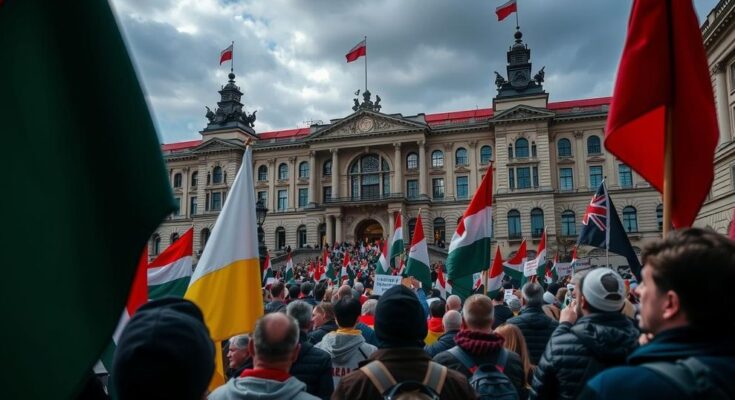Georgian Dream party has reopened parliament despite an opposition boycott over contested election results. The ruling party garnered 54 percent of the vote in the October elections, which opposition parties termed illegitimate, leading to protests and accusations of electoral fraud. Former Prime Minister Ivanishvili among those present in parliament as tensions escalated outside.
The ruling Georgian Dream party has reconvened parliament following controversial elections amid an opposition boycott that deemed the results invalid. The governing party secured approximately 54 percent of the votes during the October 26 elections, leading to heightened tensions. Opposition parties, rejecting the election outcomes as illegitimate, refused to participate in the new parliamentary session. Some protesters outside the parliament voiced their discontent, signifying a climate of unrest and distrust towards the ruling party. Amid this political turmoil, former Prime Minister Bidzina Ivanishvili and other deputies proceeded with the parliamentary session, unabated by the absence of opposition.
In the aftermath of the October legislative elections in Georgia, the ruling party’s decision to open parliament despite an opposition boycott reflects significant fractures within the political landscape. Georgia, traditionally aligned with Western interests, is witnessing growing tensions characterized by accusations of electoral fraud and increasing influence from Russia. The ruling party’s controversial legislative measures, including laws criticized for their impact on civil liberties, have further strained relations with both domestic and international stakeholders.
The reopening of parliament by the ruling Georgian Dream party amidst an opposition boycott has underscored deep political divisions in Georgia. Allegations of electoral fraud, opposition protests, and a lawsuit from the pro-European President point towards a nation grappling with its democratic integrity. As the situation unfolds, the repercussions of these tensions on Georgian politics, public trust, and international relations will remain critical.
Original Source: www.aljazeera.com




